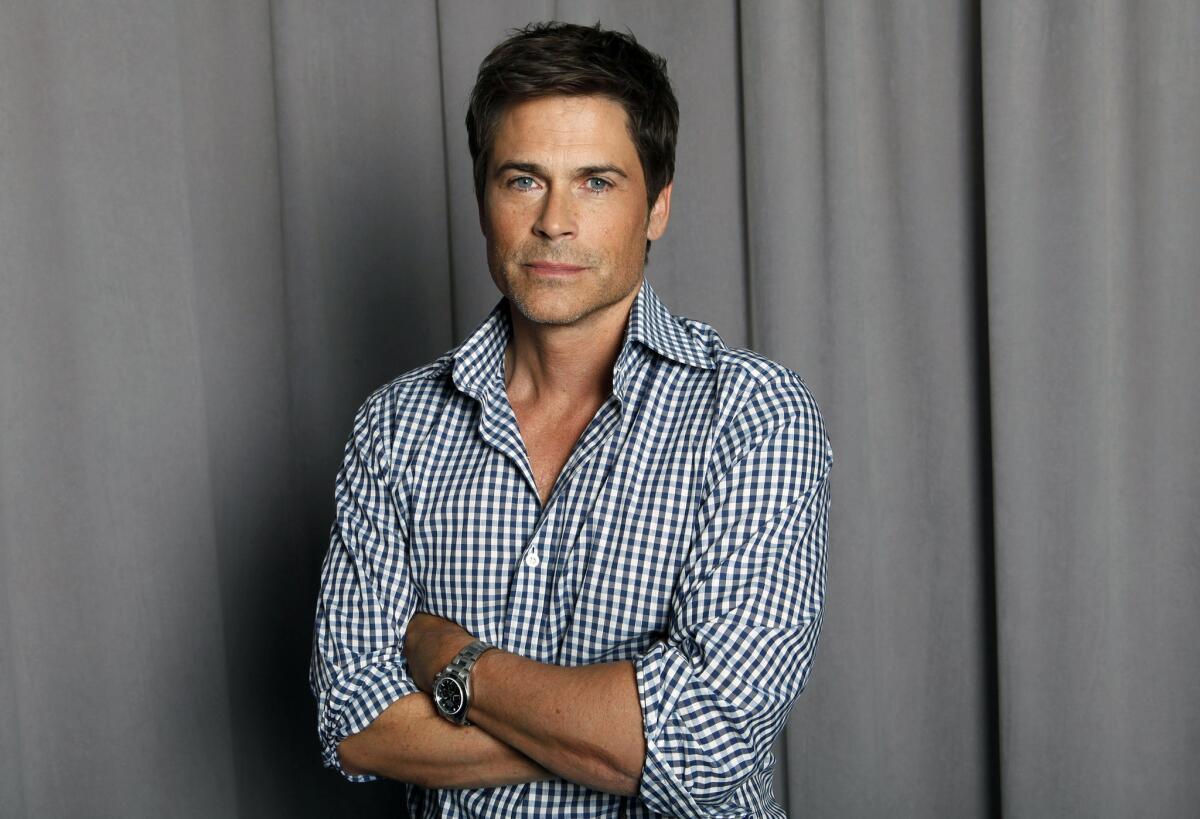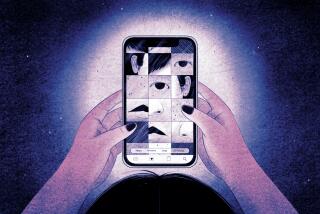Opinion: Handsome Rob Lowe says good-looking people have it tough. Please.

- Share via
“Don’t hate me because I’m beautiful,” the old commercial goes. And generally speaking, that’s decent advice: Hate is never a good idea, and there are few things in the world less attractive than envy. That said, actor Rob Lowe’s assertion in the New York Times that “there’s this unbelievable bias and prejudice against quote-unquote good-looking people” is not only hilarious sounding, it’s factually backward, with very real consequences for millions of people.
The documented benefits of being good-looking are staggering. Numerous studies demonstrate that attractive people make more money, a correlation that affects men and women alike but is even more pronounced for men. In school, studies have shown that good-looking people are more likely to be given good grades by their teachers and their work is usually assessed more positively by their peers. Students’ level of attractiveness in high school also correlates with income later in life, and good-looking people are more likely to win political office.
All things considered, it’s not surprising that they are generally happier than the average.
It’s also worth mentioning that beauty is not, in fact, in the eye of the beholder. Scientific studies consistently find that when assessing someone’s attractiveness in broad categories, people tend to overwhelmingly agree on who’s hot (and not). They are attracted to symmetry and to particular ratios in another person’s appearance, and the results are consistent across cultures.
Now, admittedly, there can also occasionally be downsides to having good looks. At times, people of the same gender as an attractive person may feel threatened and, in turn, be dismissive of that attractive individual.
I have personally experienced how the world treats people very differently based on their level of attractiveness. Due to my own medical condition and the medications I’ve taken at times to treat it, my appearance has fluctuated vastly at various points over the last 20 years. I have been ghastly thin and pale because I was unable to properly absorb nutrition, and I have been enormously fat because of the use of steroid drugs.
For the last several years, however, I’ve found a regimen that keeps me healthy, and though I’m not exactly God’s gift, I am attractive enough to be amazed by the difference in how I’m treated now versus then. People are so nice! Certainly nicer than when I looked emaciated, and much nicer than when I was fat. Experiencing that contrast has been profoundly eye-opening.
Given the serious ramifications, then, of what I call “hot privilege” (or, in the words of John Stossel, “lookism”), our society needs an equivalent of the NAACP or GLAAD to advocate for the less-attractive, an organization that could advance the equal opportunity protections that already exist in some parts of California and take them nationwide. That may sound funny, especially considering that few people want to own physical unattractiveness as part of their identity, but if there were an ethnic group that got treated the way our society treats the unattractive, they certainly wouldn’t take it lying down.
In the meantime, until such an organization exists, we should all be a little more mindful of our own biases around people’s looks, especially in a place that’s as image and appearance conscious as Los Angeles. After all, everyone deserves to be treated with dignity and respect.
Even people as beautiful as Rob Lowe.
ALSO:
Hey you guys, don’t sign up for a ‘Goonies’ sequel!
‘Game of Thrones’: Like Sherlock Holmes, will its fans love it to death?
‘How I Met Your Mother’ finale: Why you should appreciate the not-so-perfect ending
Joel Silberman is a Los Angeles-based writer and the producer of such viral Web videos as “Legitimate Rape” Pharmaceutical Ad (TW) and Kids Do The News. Follow him on Twitter @Wordpeggio.
More to Read
A cure for the common opinion
Get thought-provoking perspectives with our weekly newsletter.
You may occasionally receive promotional content from the Los Angeles Times.





